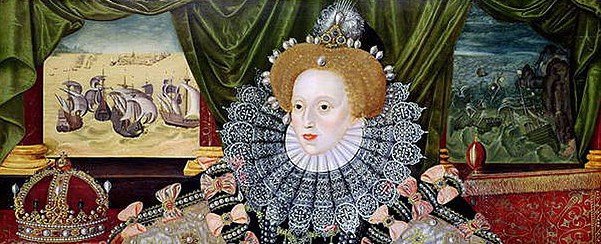
March 14, 2016, by Harry Cocks
New Histories of Anglo-German Diplomacy under Elizabeth I and James VI and I
In his 1569 account of ‘The State of Germany’, the English diplomat Robert Beale recorded that, at mealtimes, the Count Palatine of the Rhine kept twenty-four tables of eight people each in two different rooms. ‘In the one place … sitteth himself, his wife, and Children standing att one Table, alone … And his gentlewomen and Preachers att Two other Tables, and a boute Tenn Tables more adioyning to those two Tables, which stand in a Rowe … whereat doe sitt his gentlemen, who Imediatelie after the Prince be sett downe, doe likewise sitt and eate Continually att one hower, which is at Tenn in the morning, and five of the Clocke at night.’ Food was brought in and thanks given to God by ‘one of the poore Schollers that the Prince keepeth of purpose.’ At the court, Beale noted, ‘There is straight discipline … against swearing, Blasphemy [and] dronkenness, whoredome, fighting, and all other kindes of vyces, in which Cases, Notwithstanding, some more respect [is] had in the punishment of a gentleman, then of a nother, and yet none spared.’ In that strict atmosphere, ‘Daunsing is alsoe forebidden in his Courte and throughout all his Land.’ Beale’s description of Germany is one of three diplomatic reports, sent from the German states and Denmark to the Elizabethan and Scottish courts, that have been collected by David Gehring in his new edited volume, Diplomatic Intelligence on the Holy Roman Empire and Denmark During the Reigns of Elizabeth I and James VI: Three Treatises (see link). These documents were written by those charged with investigating the possibility of a formal alliance with German Protestant princes and the realm of Denmark during the conflicts that followed the Reformation. For instance, in 1558-9 and again in 1569 Henry Killigrew was sent by Elizabeth ‘to win the minds of the German princes, out of their affection to the purer religion’ and with the aim of creating a formal league with them. In 1585 Thomas Bodley’s mission to King Frederik II of Denmark aimed to secure German aid for the religious wars fought in France by Henry of Navarre. Daniel Rogers’ embassy to Denmark in 1588 partly aimed to discuss trade and piracy, but also sought to sound out the likelihood of military aid for England against Philip II of Spain. Finally, John Skene’s 1590 mission from Scotland to Denmark and Germany was part of an effort by James to broker peace in France and the Netherlands, construct an alliance against Spain, and gain German support for his accession to the throne of England.
Dr Gehring presents these reports as representative of the ‘New Diplomatic History’, a historiography that focuses less on high politics, treaties and wars, and more on the social and cultural context of diplomatic missions. The documents collected in the book show that diplomacy was embedded in broad cultural developments, and the details revealed in the documents give us a valuable picture not just of politics and courts but of how life was lived. They show us cross-cultural trends and practices, such as the affiliations of intellectuals across national boundaries, and allow us to reconstruct the processes of diplomacy in some detail. These accounts often echo travellers’ stories, discussing subjects such as art and material culture, music, gender, diplomatic ceremonial, gift exchange, and translation. There was a permeable boundary between travel and diplomacy, and many personal contacts later became diplomatic ones. The documents presented in the book are therefore broader than simple records of international relations, as Beale’s account suggests. Instead, documents such as these may better be understood as imitations of the Venetian-style discursive ambassadorial reports, or relazioni, which described not only diplomacy but the style of the place and the nature of its rulers. Beale and Rogers, at least, may have fashioned their reports in this way.
David Gehring, (ed.), Diplomatic Intelligence on the Holy Roman Empire and Denmark During the Reigns of Elizabeth I and James VI: Three Treatises (Camden Fifth Series Vol. 49, Cambridge University Press, 2016).
No comments yet, fill out a comment to be the first

Leave a Reply